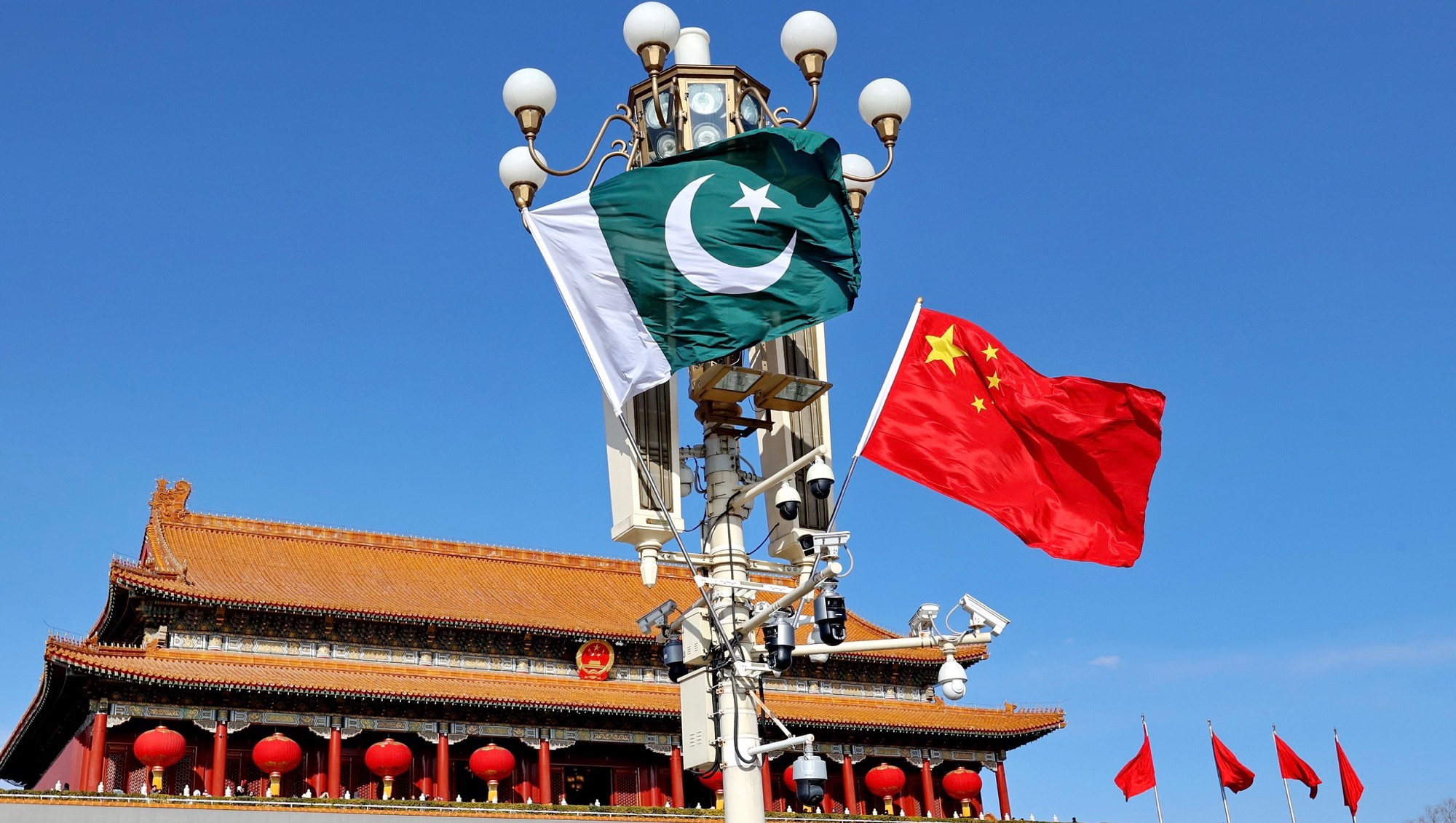China looms large over India and Pakistan's latest violence
Beijing may not have had troops on the ground, but as South Asia's two nuclear powers bared their teeth over Kashmir, China eyed an opportunity


A free daily email with the biggest news stories of the day – and the best features from TheWeek.com
You are now subscribed
Your newsletter sign-up was successful
India and Pakistan's escalating military attacks against one another in recent weeks, which brought the two antagonistic powers closer to major conflict than they had been in years, called attention to another stakeholder in the region: China. The global superpower has a keen interest in what happens in its national backyard.
Following last month's terrorist assault on tourists in the contested Kashmir region, long claimed by both India and Pakistan, the two nuclear-armed nations' escalating violence seemed to resolve with a shaky but stable weekend ceasefire. But China's shadow looms large over the events of this past week, and the hints at the possibility of future violence between South Asia's longtime adversaries.
A 'rich intelligence harvest' for China
Pakistan's claim that its forces used Chinese-made J-10C fighter jets to down Indian aircraft, "including the advanced French-made Rafale," may have provided the world's "first real glimpse" at how "advanced Chinese military technology performs against proven Western hardware," CNN said. While it hasn't fought a major war in nearly half a century, China has "raced to modernize its armed forces." As Pakistan's "primary arms supplier," Beijing is "likely watching intently" to gauge how well its weapons "have and potentially will perform in real combat."
The Week
Escape your echo chamber. Get the facts behind the news, plus analysis from multiple perspectives.

Sign up for The Week's Free Newsletters
From our morning news briefing to a weekly Good News Newsletter, get the best of The Week delivered directly to your inbox.
From our morning news briefing to a weekly Good News Newsletter, get the best of The Week delivered directly to your inbox.
With China supplying the "vast majority" of Pakistan's military purchases, and India turning westward for its own arms, the result has "injected superpower politics into South Asia's longest-running and most intractable conflict," The New York Times said — particularly as China has "deepened its investment in its advocacy and patronage of Pakistan" in the face of warming Indian-American relations. The "most important global aspect" of this latest Indian-Pakistani violence is that for the first time, "Chinese military equipment has been tested against top-notch western equipment," said Sushant Singh, a lecturer at South Asian Studies at Yale University, at the Financial Times.
The latest violence between India and Pakistan also offers a "potentially rich intelligence harvest" for China, which has advanced enough capabilities to "deeply scrutinize Indian actions in real time" across border installations, naval fleets, "as well as from space," Reuters said. While both India and China have "taken steps to strengthen their military facilities and capabilities" along their shared border, China's host of orbital satellites in particular "packs an intelligence gathering punch" compared to India's capabilities.
'Peace, stability and development' in the region
While China and Pakistan enjoy close military and diplomatic ties, Beijing has conspicuously — and perhaps surprisingly — pushed for a measure of restraint during this latest spate of Kashmir violence. India and Pakistan are both "important countries in South Asia," said Chinese Foreign Ministry Spokesperson Guo Jiakun last month. The "harmonious coexistence" between the two rival nations is "vital to the peace, stability and development of the region.
Continued violence between India and Pakistan could threaten China's "very important equities in Pakistan, including sizeable levels of infrastructure investment and other assets," said regional analyst Michael Kugelman to the South China Morning Post. Moreover, Beijing's "recent efforts to improve relations with India may limit its response to diplomatic support for Pakistan," said The Diplomat.
A free daily email with the biggest news stories of the day – and the best features from TheWeek.com
At the same time, Pakistan's alleged use of Chinese-made fighter jets to successfully repel Indian planes is "essentially a powerful advertisement" for China's arms industry, said military observer Antony Wong Dong to CNN. "All countries potentially looking to buy fighter jets, as well as China’s regional rivals, will need to seriously reconsider: how should they face this new reality?"
Rafi Schwartz has worked as a politics writer at The Week since 2022, where he covers elections, Congress and the White House. He was previously a contributing writer with Mic focusing largely on politics, a senior writer with Splinter News, a staff writer for Fusion's news lab, and the managing editor of Heeb Magazine, a Jewish life and culture publication. Rafi's work has appeared in Rolling Stone, GOOD and The Forward, among others.
-
 Local elections 2026: where are they and who is expected to win?
Local elections 2026: where are they and who is expected to win?The Explainer Labour is braced for heavy losses and U-turn on postponing some council elections hasn’t helped the party’s prospects
-
 6 of the world’s most accessible destinations
6 of the world’s most accessible destinationsThe Week Recommends Experience all of Berlin, Singapore and Sydney
-
 How the FCC’s ‘equal time’ rule works
How the FCC’s ‘equal time’ rule worksIn the Spotlight The law is at the heart of the Colbert-CBS conflict
-
 Will increasing tensions with Iran boil over into war?
Will increasing tensions with Iran boil over into war?Today’s Big Question President Donald Trump has recently been threatening the country
-
 The fall of the generals: China’s military purge
The fall of the generals: China’s military purgeIn the Spotlight Xi Jinping’s extraordinary removal of senior general proves that no-one is safe from anti-corruption drive that has investigated millions
-
 US, Russia restart military dialogue as treaty ends
US, Russia restart military dialogue as treaty endsSpeed Read New START was the last remaining nuclear arms treaty between the countries
-
 What happens now that the US-Russia nuclear treaty is expiring?
What happens now that the US-Russia nuclear treaty is expiring?TODAY’S BIG QUESTION Weapons experts worry that the end of the New START treaty marks the beginning of a 21st-century atomic arms race
-
 Which way will Trump go on Iran?
Which way will Trump go on Iran?Today’s Big Question Diplomatic talks set to be held in Turkey on Friday, but failure to reach an agreement could have ‘terrible’ global ramifications
-
 EU and India clinch trade pact amid US tariff war
EU and India clinch trade pact amid US tariff warSpeed Read The agreement will slash tariffs on most goods over the next decade
-
 China’s Xi targets top general in growing purge
China’s Xi targets top general in growing purgeSpeed Read Zhang Youxia is being investigated over ‘grave violations’ of the law
-
 The app that checks if you are dead
The app that checks if you are deadIn The Spotlight Viral app cashing in on number of people living alone in China
